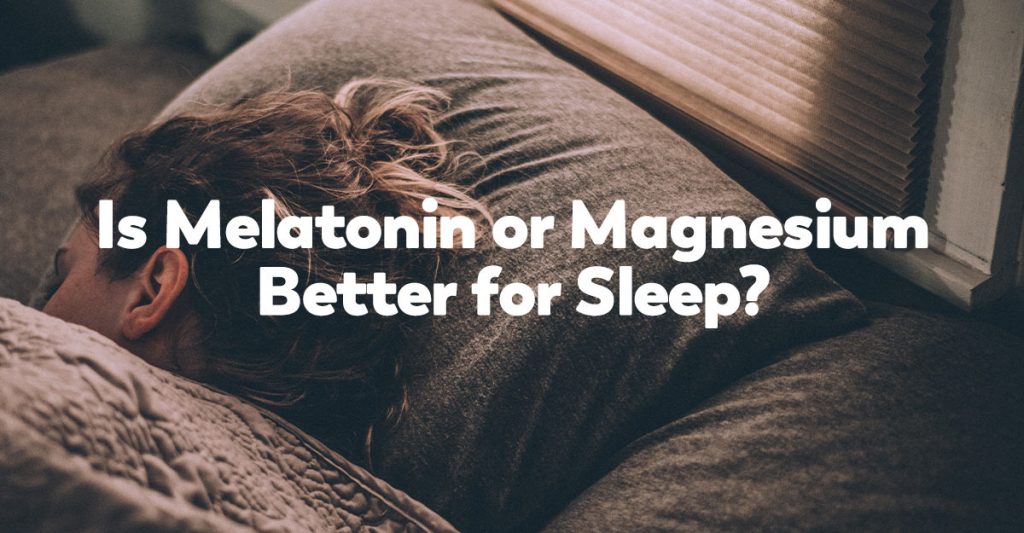It seems that now more than ever, people are having a hard time achieving satisfying sleep at night. Maybe you’re someone who has occasional insomnia. Maybe you inexplicably wake up several times a night, or awaken in the morning feeling anything but rested. Whatever the case, if you’re looking for more rest to achieve the recommended seven to nine hours of shuteye for adults, you probably want to know what simple steps can help you accomplish this important goal.

There are many sleep aids on the market. Some are available as a prescription. These can be quite strong, with several potential side effects. However, others are natural, non-habit forming, and available over the counter. Two of the most popular options in the camps of natural remedies are melatonin and magnesium. The question is, which one is right for you when you want a little more shuteye?
Which is Better: Magnesium or Melatonin?
Before we continue, it is important to understand that melatonin and magnesium are different. So for you, one may provide the sleep you want when compared to the other. Regardless of your choice, both magnesium and melatonin are necessary for sleep; they affect your sleep in different ways.
Keep in mind that you don’t have to supplement these substances on a typical day. Your body produces melatonin in the pineal gland. This naturally-occurring hormone signals the body that it’s time to rest. It responds to changes in light at the end of the day and your body’s circadian rhythms.
Magnesium, on the other hand, isn’t produced by the body. It’s found in food – most often fruits, vegetables, and nuts. A vital mineral, magnesium, affects the body’s parasympathetic nervous system, which makes you feel relaxed and sleepy at night. Magnesium even has a hand in how much and when the pineal gland releases naturally-occurring melatonin!
Unfortunately, many people don’t produce enough melatonin or don’t produce it at the right time, their circadian rhythms having been thrown out of whack for one reason or another. Similarly, many people are deficient in magnesium, not regularly consuming enough of it in their daily diets.
Luckily, both magnesium and melatonin can be supplemented. For example, Melatonin 20 Mg from Bio-Tech Pharmacal, when taken orally, and Ancient Minerals Magnesium Lotion Goodnight with Melatonin from Enviromedica, when applied to the skin, may be enough to help you to feel more relaxed and sleepy at the end of the day.
Other Techniques for Getting the Best Sleep
If you start to supplement with melatonin and magnesium, it’s important to ensure that your other nighttime activities aren’t working against you. This is sometimes known as sleep hygiene. Here are a few of the best practices for sleep and restfulness:
- Don’t drink any caffeine afternoon. This is especially true for people who don’t drink caffeine daily, as they might not be used to a specific dose, and could still be stimulated by even a little caffeine when it’s time to sleep.
- Pick a bedtime and stick to it. Allowing your body to acclimate to a specific time when you expect to be in bed will make good sleep more of a habit than an exception.
- Exercise at some point each day, for at least half an hour. By depleting your energy reserves, sleep will be more natural to come by at day’s end.
- Make sure the room you sleep in is very dark. As mentioned above, your body’s natural melatonin production is linked to your environment’s brightness. Thus, lights from phones and computers can counteract the processes by which your body produces sleepiness.
With good sleep time habits and some careful supplementation, you should be able to take back the rest you miss from a good night’s sleep.
